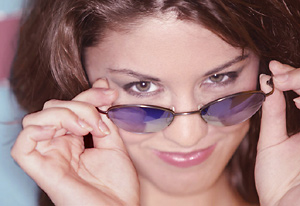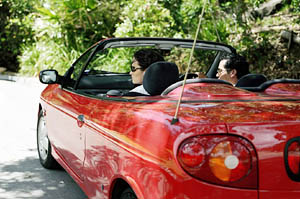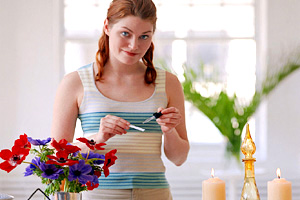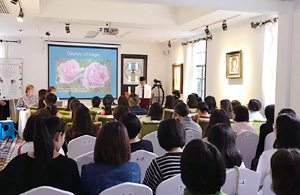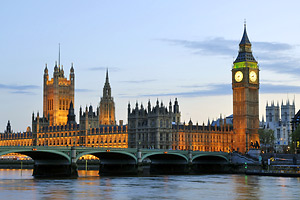Summer Eye Protection
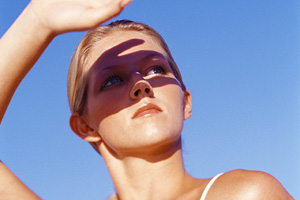 Right now we are finally enjoying some glorious sunshine here in the United Kingdom, and unsurprisingly, most people are making the most of it whilst it lasts.
Right now we are finally enjoying some glorious sunshine here in the United Kingdom, and unsurprisingly, most people are making the most of it whilst it lasts.
And although I don’t want to spoil anyone’s enjoyment, I do think it is important for all you sun-worshipers out there to be aware of the importance of wearing eye protection when out in the bright sunshine.
Summertime is the most dangerous season for your eyes. You are at least three times more likely to cause serious sun damage to your eyes in the summer than you are in the winter. This is because the sun produces three times more ultraviolet radiation in the form of UVA and UVB rays during the summer than any other season.
It’s true that clouds do block some ultraviolet rays from reaching the ground, so it’s not as important to wear eye protection when the sun’s not shining. But on cloudless, bright, sunny days it’s a good idea to get into the habit of wearing protection against those invisible rays.
Protection racket
Sunglasses offer unrivalled protection from the sun’s damaging ultraviolet rays, so that’s one offer you definitely don’t want to refuse. The eyes are the windows to the world, and these complex yet delicate body parts need all the protection they can get. Although you can’t see the damaging ultraviolet rays, they are always present – even when the sun isn’t shining. Sunglasses that effectively block these rays can help keep your eyes safe and healthy.
Age is not really a factor either, meaning that children’s eyes are just as susceptible to these hidden dangers as adults. And when you consider that children generally spend much more of their time outdoors, eye protection for children becomes an absolute must. Babies and infants in strollers should wear eye protection as well, because people who start protecting their eyes at a young age are far less likely to have problems later in life.
How much protection is enough? The sunglasses you choose should have lenses that block at least 99% of the ultraviolet light. There should be a sticker on the lens or a tag attached to the frame advising how much ultraviolet protection each pair provides, so be sure to look for this information and read it. If you’d don’t see a sticker or tag offering this vital information the chances are they don’t offer much defence against UV. Just select another pair.
Ideally, choose a pair that provides full protection from both UVA and UVB rays, which are generated from the sun even on cloudy days. While experts disagree about possible negative effects UVA rays may have on the eye, it is known that UVB rays can cause a number of eye conditions including permanent retinal damage, so make sure your sunglasses are rated for full UV protection.
Fashion conscious
If fashion is your main consideration, pick a stylish frame and then have custom lenses with UV protection added to them. If sun protection is your primary concern, pick up a pair of wraparound sunglasses that will block light that would normally skip past the frames of regular sunglasses.
After you’ve found a style that you like, think about the lenses. You’ve probably seen sunglasses with different coloured lenses. While on cheap plastic sunglasses colour may be little more than a fashion choice, with proper lenses, the colour can tell you more about the purpose of the sunglasses. Knowing the different kinds of lenses will help you make the best decision when choosing sunglasses.
- Photochromic lenses change colour depending on the amount of UV light to which they are exposed, although for the most part, they appear darkly shaded when outside, and light or clear when inside. Photochromic lenses create the illusion of sunglasses and regular glasses in one package.
- Amber-coloured lenses tend to block blue light. There is discussion about whether blue light is harmful to the eye, but outdoors lovers agree blue-blocking lenses are super on the ski slopes or while hunting or fishing.
- Mirror-coated sunglasses limit the light that reaches your eye, which may make it easier to see in very bright situations.
- Gradient lenses, as the name implies, are those that are tinted at different opacities from the top down or from the bottom up. Top-down gradient lenses in sunglasses are great for driving and viewing the controls clearly.
- Polarized and anti-reflection-coated sunglasses reduce the amount of reflected light reaching your eyes, which is great in super-bright situations such as in the snow on a sunny winter day.
Nearly every style of sunglasses, lenses and frames, can be made to accommodate special prescriptions so that even those with poor vision can benefit from wearing sunglasses. There are so many different designs, styles and prices that it is difficult to come up with an excuse for not wearing them.
If you still remain unconvinced about the dangers of ultraviolet light, remember that over time excessive exposure to the harmful UVA and UVB rays the sun emits can lead to the onset of eye conditions, including retina damage and even cataracts. So do your eyes a favour – eat up your carrots and be sure to carry your sunglasses with you at all times!
Copyright © Quinessence Aromatherapy Ltd 2019. Written by Sue Charles




